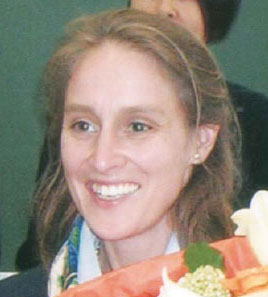Foreign and Military Affairs
EU seeks better understanding of China
By David Bartram (China Daily European Weekly)
Updated: 2011-04-29 10:50
 |
Large Medium Small |
British MEP Graham Watson maintains an active interest in China having been part of the European parliament's delegation to the country.
"China's interest in engaging has stimulated a wider interest in the country which these institutes are serving," he says.
 Barbara Mittler of the Institute of Chinese Studies at the University of Heidelberg. [Photos Provided to China Daily]
|
In many respects, the role of these institutes is to keep China on the Brussels agenda. Despite the clear rise in interest over recent years, this can be a thankless task. Gaining the attention of MEPs such as Watson - who must balance the concerns of their constituents, national party and continent-wide group - is never easy. Dedicating time to the EU-China relationship is rarely a headline-making, vote-winning proposition either.
Responding to these demands, Brussels-based think tanks are increasingly turning toward publications. The European Institute for Asian Studies (EIAS) releases a range of newsletters, reports and briefings on China.
"We try to reach out toward researchers, scholars, European and Asian institutions, diplomatic divisions, the corporate sector, NGOs and civil society," says Lin Goethals, program coordinator at the EIAS.
"The main topics of interest are climate change and the environment, trade relations, economy and business related matters, as well as social issues, development and diplomacy."
A typical EIAS China event is attended by everyone from senior European policymakers to enthusiastic interns. Recent events have examined the EU and China's strategic access to raw materials in Africa and the ideology behind China's recent economic growth. Concise reports of events are made available to those unable to attend in person.
Although such reports make it easier for policymakers, academics and businesspeople to follow developments away from Brussels, China-watchers across Europe are enjoying unprecedented access to information on contemporary affairs.
Take the UK, where prominent China centers have developed in London, Oxford, Edinburgh and Nottingham. Yao Shujie is the head of Nottingham's School of Contemporary Chinese Studies. The school has grown rapidly in recent years to incorporate a China policy institute and the Nottingham Confucius Institute, on top of providing resources to almost 900 students studying Mandarin as part of their degree. But despite this growth, Yao argues that the UK still has room for improvement when it comes to work on contemporary China.
"At the moment (study of contemporary China) is still on a relatively small scale. In Nottingham it operates on a larger scale, but in the country as a whole it is still relatively small. I'm hoping that other universities can follow Nottingham as it will help the study of China policy move into common knowledge."
Moving contemporary China into the general consciousness is at the heart of the work done at Nottingham. The school takes a number of approaches, including setting the agenda on China through regular media appearances and trying to sell the idea of China to bright young students who will become the policymakers of tomorrow.